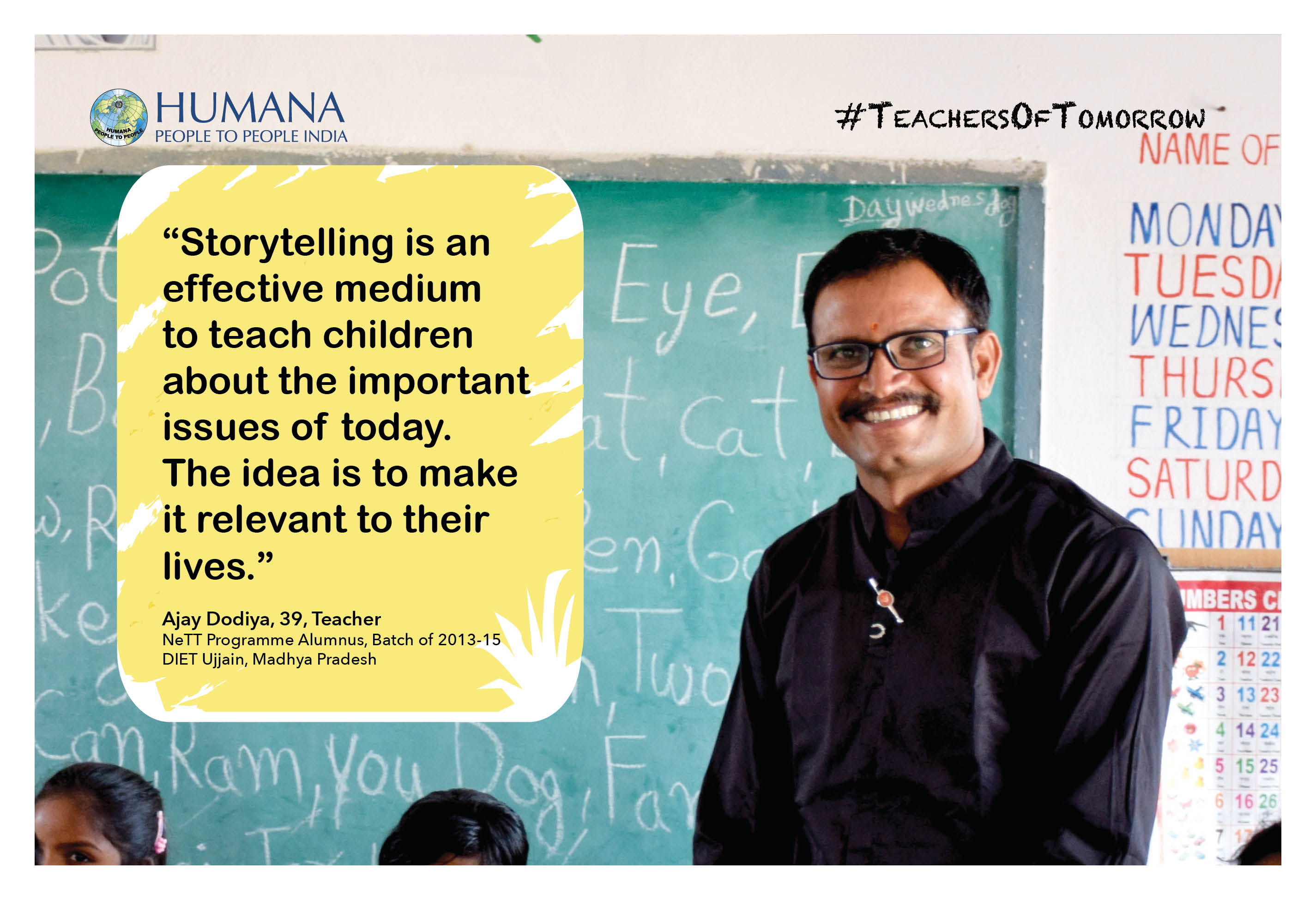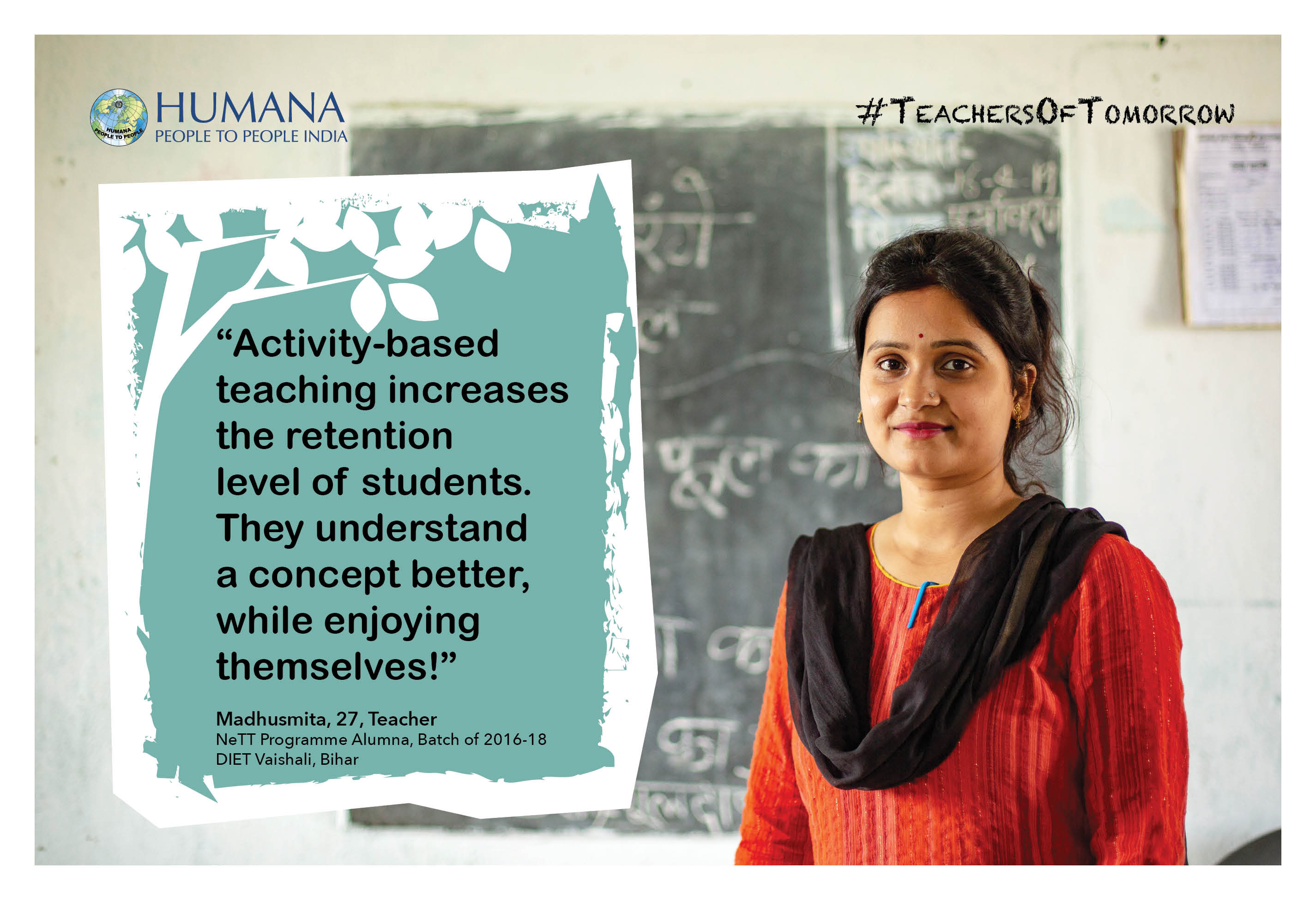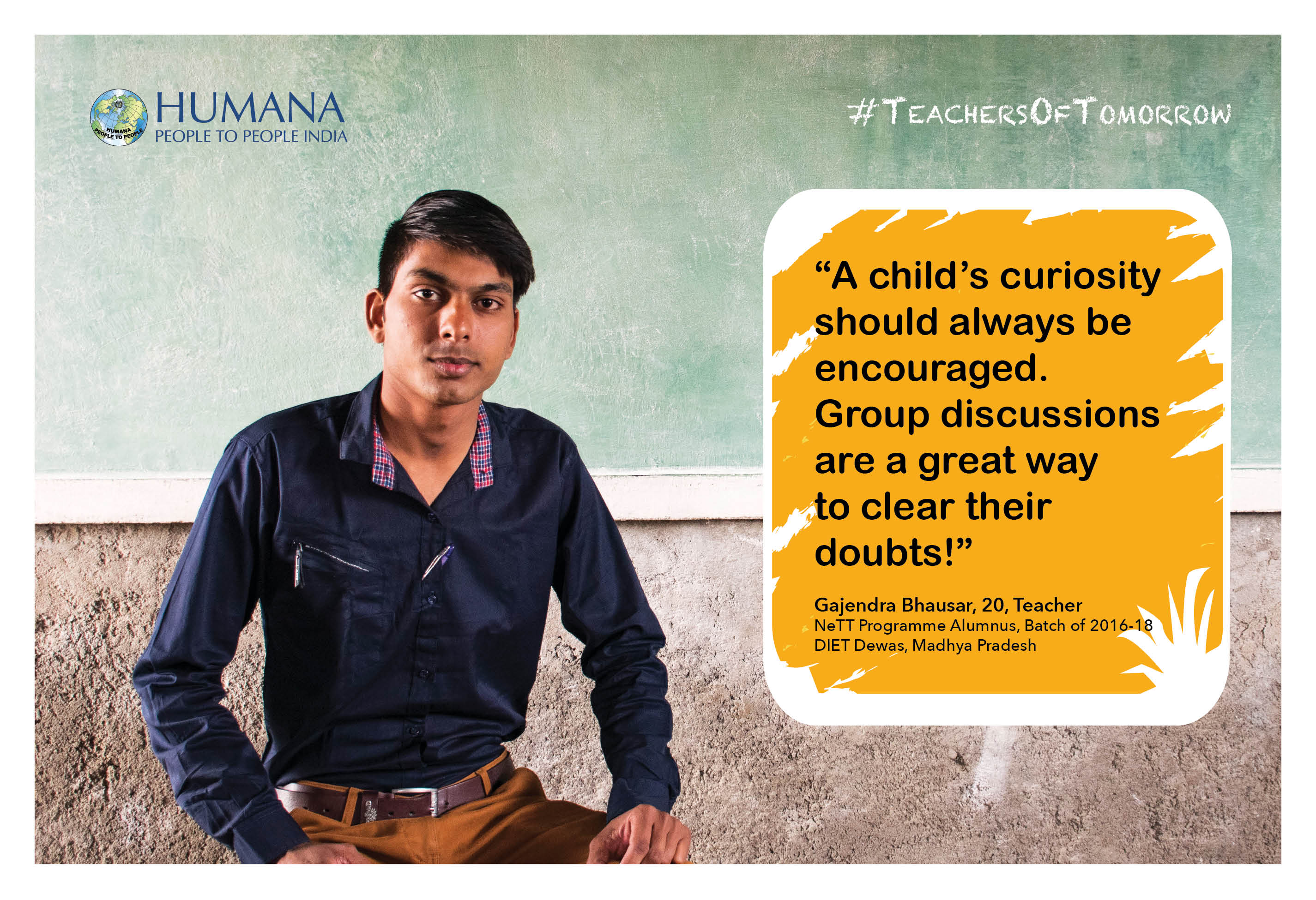The first day as a teacher can be an unnerving experience. For Ajay Dodiya, it was a learning experience. When the 39-year-old entered his classroom in Amla village in Ujjain district of Madhya Pradesh, India, there were barely 6-7 children sitting in his class while the register indicated a total of 41 enrolled students. Ajay soon found out that this was a routine affair at the school.
Like several other schools in rural India, the majority of students in this region come from poor families, with their parents mostly working as landless farmers. This poses a specific problem of securing student retention in the school, as most students are prone to never attending classes owing to prolonged lack of parental supervision.

“I knew it was a common issue in rural primary schools, but in spite of being from the nearby community, even I did not anticipate this scale of truancy,” recalls Ajay.
Ajay’s predicament is all too common among the rural primary school teachers of India.
Through progressive legislations like the Right to Education Act, India has come a long way in ensuring universal primary education to all the children of the country. Challenges, however, still abound, and are not merely limited to the issue of out-of-school children. Year after year, the Annual Status of Education Report (ASER) has indicated dismal learning outcomes among primary grade students in India. According to the latest ASER, more than 50% of the students in 5th standard attending rural schools are not capable of reading a 2nd standard textbook and cannot solve basic mathematical questions.
“We knew that we had to retain the students’ interest in studies if we had to bring them back to the school. My training in play-way method of teaching under the Necessary Teacher Training Programme (NeTT) has been particularly useful in order to achieve this,” says Ajay.
 In 2015, Ajay graduated from Humana People to People India’s two-year NeTT Programme being implemented in partnership with the Government of Madhya Pradesh, at the District Institute of Education and Training (DIET), Ujjian.
In 2015, Ajay graduated from Humana People to People India’s two-year NeTT Programme being implemented in partnership with the Government of Madhya Pradesh, at the District Institute of Education and Training (DIET), Ujjian.
The Programme is designed with an objective of long-term, sustainable improvement in learning outcomes in the elementary school students through targeted, programme-based training of pre-service student-teachers at the DIETs, and promoting activity-based and child-centric teaching. Key inherent elements of community focused engagements and promotion of women as change agents ensure sustainable and systemic impact of the programme, achieving a holistic development of the students and teachers alike.
“We decided that since they skipped school to play with their friends, we will provide them a better environment to play within the school premises. Further, we used technological interventions, such as the use of radio as a classroom transaction tool which further piqued their interest in coming to the school regularly. Ours is the only school in the region using radio to conduct classes,” says Ajay with a feeling of pride.
Today, all the 41 students regularly attend classes and the school has witnessed significant improvements in grades as well.
 This year marks the 10-year anniversary of the NeTT Programme in India. The Programme has so far graduated more than 10,000 teachers, many of whom today, like Ajay, provide quality education to children across government and private schools across India. Today, the NeTT Programme is operational in 15 Government Teacher Training Institutes across five states in India.
This year marks the 10-year anniversary of the NeTT Programme in India. The Programme has so far graduated more than 10,000 teachers, many of whom today, like Ajay, provide quality education to children across government and private schools across India. Today, the NeTT Programme is operational in 15 Government Teacher Training Institutes across five states in India.
The Sustainable Development Goal 4, and the dedicated target of SDG 4.c, recognises teachers as key to achieving the Education 2030 agenda, and the NeTT Programme in India is one step among many to bring the country closer to the goal.
